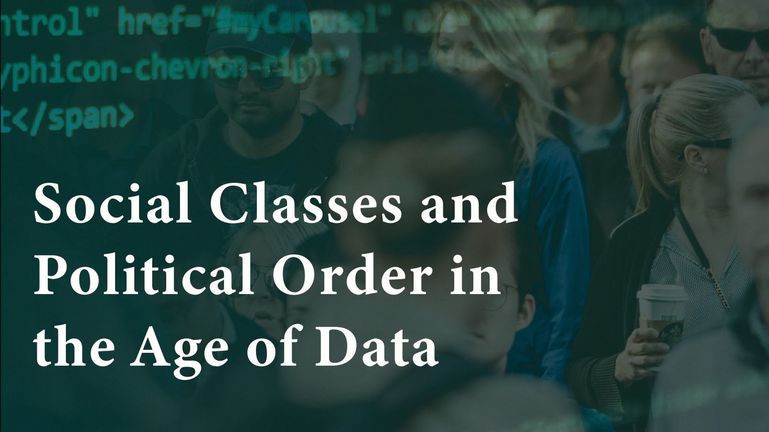Data change our social structure
The massive creation of data that appeared during the last decade, generates innumerable new opportunities and new ways to create wealth, thus impacting the way society and the economy work. This in turn modifies radically the way social interactions and political order used to be up to the beginning of the twenty-first century. In my new book I talk about social classes and political order in the age of data.
In the past, each time a new way to create wealth appeared a new social class appeared: it was the kings and priests when agricultural overproduction first appeared in Mesopotamia and ancient Egypt; bankers (i.e., financial capitalists) when money allowed bankers in Venice or the Netherlands to generate wealth; or industrial capitalists at the times of the industrial revolution and of course later.
It is natural to conclude then, that since data enable new ways of creating wealth and new opportunities, very natural a new social class appears. This new social class – tiny but extremely influential – is composed of two subclasses, data owners and data workers. It perturbates radically the equilibria between previously existing social classes. This creates strong divergences that threaten social cohesion. The newly repositioned social class – under the influence of specific features of data – perturbates also the political order as we knew it even at the turn of the century.
Data, as a new form of capital, not only create opportunities but also risks; these risks also modify all other previously existing global risks, such as environmental risks or risks related to bad use of technology. Risks are the boundaries within the interactions between classes and political order evolve.
The political order, in which we evolve, is rapidly changing in several aspects e.g., the role of the state; the trust to the governments is radically deteriorated and their accountability becomes less solid; the rule of law is challenged; the very notion of national sovereignty itself is also evolving due to the nature of data capital. Radical imbalances are generated between social classes; large parts of the population risk to be left behind both in economic terms as well as in terms of influence in the commons.
Mitigating the imbalances needs changes in the economic system
Tracks to mitigate the imbalances can go across an improved situation in the ownership of data by their sources, (e.g., medical sensors that generate data or data created by physical persons in the form of text, speech or image(s)) through a balanced – if possible, global – regulation, data commerce (possibly in the form of a regulated data market), rebalancing of the wealth generated by data between citizens, and, last but not least, education and information of the data impact and role to our fellow citizens.
In this perspective, our basic assumptions are challenged on which our societies and politics are based upon and that we consider as “given”.
The final point is that due to the presence of the new social classes (induced by massive data) our basic assumptions (the invisible hand of the market and the economic classification of populations) need to be reconsidered. Even, the “sacred” “invisible hand of the market” has to be rethought because of its fundamental incompatibility with a market in which data is the product.
Bringing in the view of a technologist
The fact that this type of book comes from a technologist is an important differentiator for me, a radically different angle of view than the certainly very valuably and complementary analysis of sociologists, economists, or political scientists. These scientists are informed by asking what technology is doing. It is however impossible to have the exposure that people of my world, people that are immersed in the difficulties, the potential, and the risk of technologies. Such insider’s insight is of paramount importance under the increasing complexification of products, processes, and services that is induced by technology. This new view angle is the contribution of this work.
More information
Social Classes and Political Order in the Age of Data – Cambridge Scholars Publishing
https://www.cambridgescholars.com/product/978-1-5275-8904-9
- Tags:
- data

0 comments